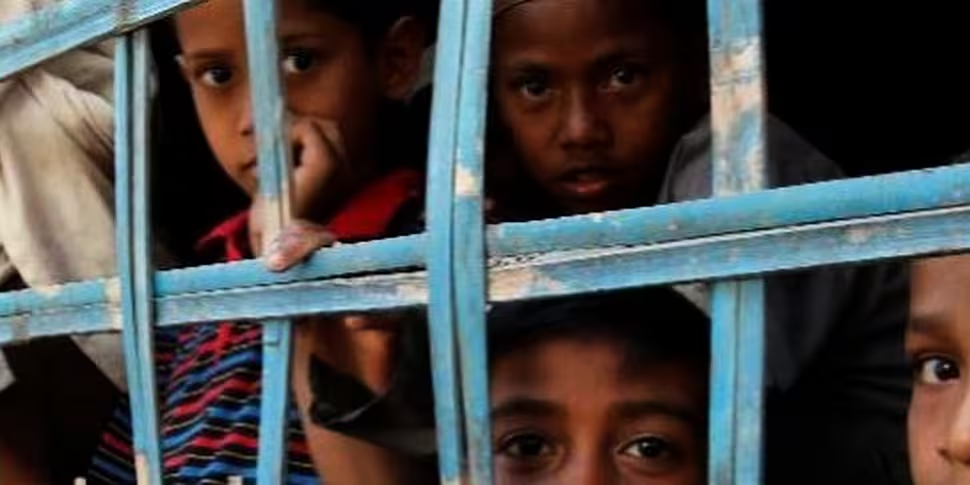A new report from Amnesty International says the Rohingya population in Myanmar is trapped in a system of discrimination, which amounts to apartheid.
The human rights group says Myanmar authorities are keeping Rohingya women, men and children "segregated and cowed" in a dehumanising system of apartheid.
"Their rights are violated daily and the repression has only intensified in recent years" it says.
The two-year investigation reveals how authorities severely restrict virtually all aspects of Rohingyas’ lives in Rakhine State, and have confined them to what amounts to a ghetto-like existence.
It says they struggle to access healthcare, education or in some areas even to leave their villages.
"The current situation meets every requirement of the legal definition of the crime against humanity of apartheid", Amnesty says.
Image: Amnesty International
Anna Neistat, Amnesty International’s senior director for research, says: "This system appears designed to make Rohingyas’ lives as hopeless and humiliating as possible.
"The security forces’ brutal campaign of ethnic cleansing in the past three months is just another extreme manifestation of this appalling attitude.
"Although these rights violations may not be as visible as those that have hit the headlines in recent months, they are just as horrific.
"The root causes of the current crisis must be addressed to end the cycle of abuse and make it possible for Rohingya refugees to return to a situation where their rights and dignity are respected."
First-hand accounts
The report says for Rohingya who do manage to obtain permission to travel in northern Rakhine State, frequent checkpoints "are a constant menace," where they are regularly harassed, forced to pay bribes, physically assaulted or arrested.
One Rohingya man described witnessing such abuse when the bus he travelled on was stopped by police.
He told Amnesty: "There were four police in total, two of them beat the guys with a cane on their backs, shoulders and thighs.
"Another slapped the lady four or five times with his hand. […] After that they took them to the police station."
While conducting research for the report, Amnesty International says its staff saw first-hand a border guard kicking a Rohingya man at a checkpoint, and documented at least one case of an extrajudicial execution, when officers shot dead a 23-year-old man travelling during curfew hours.
It says underpinning the discrimination is their lack of legal rights in Myanmar.
"At the heart of this are discriminatory laws and practices, in particular the 1982 Citizenship Act, which have effectively denied citizenship to Rohingya on the basis of their ethnicity."
The research also reveals how Myanmar authorities have engaged in "a deliberate campaign to strip Rohingya of even the limited forms of identification" they do have.
Since 2016, it says the government there has made it "extremely cumbersome" for Rohingya to register newborn babies on household lists.
"Meanwhile, in northern Rakhine State, those who are not home for annual 'population checks' risk being deleted from official records altogether".
Last week, Human Rights Watch said Burmese security forces have committed widespread rape against women and girls as part of a campaign of ethnic cleansing against Rohingya Muslims.
Read the full report here










